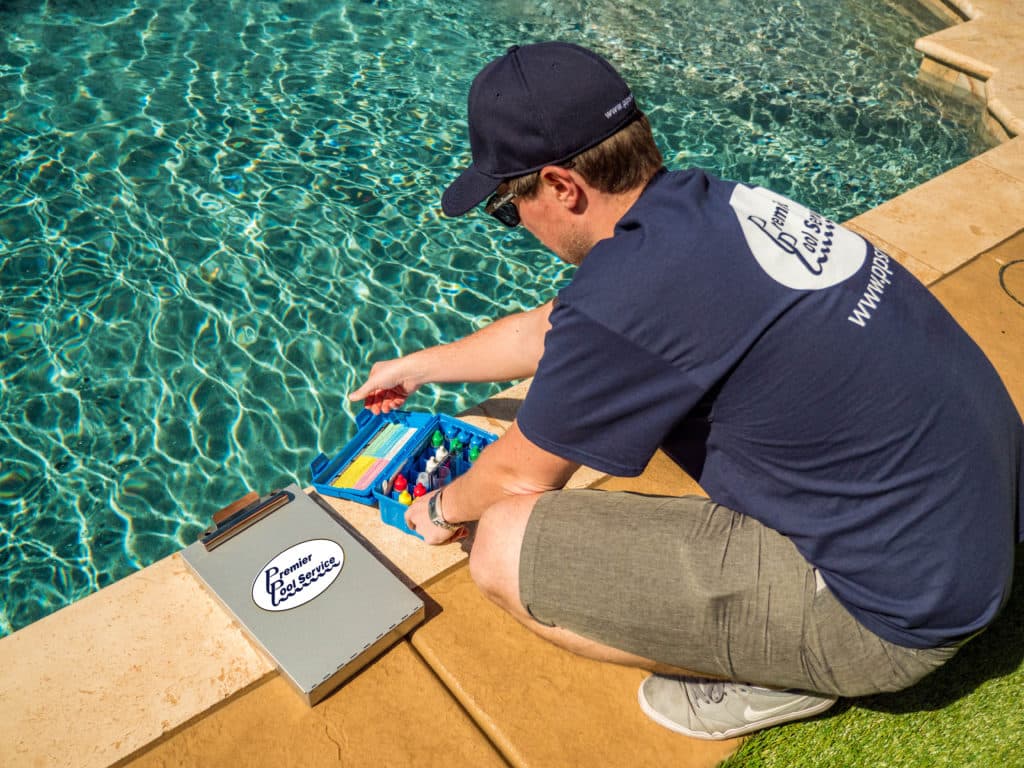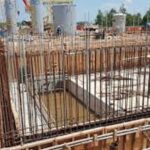A swimming pool is a wonderful addition to any home, offering a place to relax, exercise, and entertain. To ensure your pool stays inviting year-round, maintaining your pool heater is essential. A well-maintained pool heater keeps the water at the perfect temperature, extending your swimming season and saving you money in energy costs. However, like any other appliance, a pool heater requires proper care to function optimally.
Whether you have a gas, electric, or solar pool heater, regular maintenance is key. By taking simple steps to care for your equipment, you can avoid costly repairs and ensure your heater lasts for years to come. If you’re unsure about handling some of the more technical aspects of maintenance, a Swimming Pool Heating Specialist can assist in keeping your system running efficiently. Here are some of the best tips for maintaining your pool heater.
1. Regularly Clean the Heater’s Components
Just like any other mechanical device, a pool heater needs to be kept clean to function efficiently. Dirt, debris, and other particles can clog the heater’s components, reducing its effectiveness and lifespan. Make it a habit to check and clean your heater’s air and water intake filters at least once a month.
Steps for cleaning the filters:
- Turn off the power: Always switch off the power supply before cleaning your pool heater.
- Inspect the filter: Look for debris, dirt, and algae buildup.
- Clean the filter: Rinse it thoroughly with water. For stubborn dirt, you can use a soft brush to remove particles.
- Replace filters if necessary: Over time, filters may become damaged or too dirty to clean properly. Replacing them can improve the performance of your heater.
Additionally, check the heater’s heat exchanger for debris, algae, and dirt. Keeping these parts clean ensures better heat transfer and improves efficiency.
2. Check for Leaks Regularly
Leaks in your pool heater can lead to a loss of heated water, wasting energy and driving up your bills. Routinely check for leaks around the heater, especially in the piping connections. Small leaks can be hard to detect, so it’s important to pay attention to any signs of dampness or water pooling around the heater.
If you notice any leaks, it’s best to address them immediately to avoid bigger problems down the road. For major leaks or more complicated issues, it’s advisable to contact a Swimming Pool Heating Specialist who can diagnose and repair the problem quickly.
3. Maintain Proper Water Chemistry
The quality of your pool water directly affects the performance of your pool heater. If the pool water is imbalanced, it can cause corrosion and mineral buildup, which can damage the heater over time. Ensuring your pool water has the right pH, alkalinity, and calcium hardness levels can help protect your heater’s components from damage.
You should regularly test the water using a pool testing kit to ensure the water chemistry is in balance. A pH level between 7.2 and 7.8 is ideal, as this prevents damage to the heater and other pool equipment. Also, check your calcium hardness levels—too high or low can cause scaling, which affects your heater’s efficiency.
4. Inspect the Pool Heater’s Thermostat
A malfunctioning thermostat can cause your pool heater to run inefficiently or even fail completely. Regularly check the thermostat to make sure it’s reading the correct temperature and adjusting the heater’s output properly.
If the thermostat is not working correctly, it could lead to the heater overheating, using excessive energy, or underheating the water. In such cases, it’s important to get the thermostat checked or replaced by a professional. A Swimming Pool Heating Specialist can quickly identify thermostat issues and help you avoid costly repairs in the future.
5. Test and Calibrate the Heater
It’s a good practice to periodically test and calibrate your pool heater. This will ensure that it is operating at its optimal efficiency. You can do this by running the heater and checking its performance in terms of heating speed and temperature consistency.
If you notice any fluctuations or inefficiencies, it may be time to have the system calibrated or serviced. For gas and electric pool heaters, the calibration process involves checking the fuel and electricity supply to ensure smooth operation.
6. Monitor the Heater’s Pressure
The pressure of the water running through the pool heater is crucial for efficient heating. Too little pressure can prevent the heater from circulating water properly, while excessive pressure can strain the system and lead to breakdowns.
Use a pressure gauge to regularly monitor the pressure levels. If you notice the pressure is too low or high, check the pump and filter for any blockages or issues. Adjusting the pressure to the manufacturer’s recommended range ensures that your pool heater operates without stress and at maximum efficiency.
7. Cover Your Heater During the Off-Season
During the colder months, many pool owners choose to close their pools and stop using the heater. If this is the case for you, it’s important to cover your heater to protect it from dirt, debris, and the elements.
Use a protective cover specifically designed for pool heaters to keep it safe during the off-season. This simple step prevents damage from harsh weather conditions, extends the life of the unit, and saves you time and money when the next swimming season rolls around.
8. Schedule Professional Inspections and Service
Although regular cleaning and maintenance can extend the life of your pool heater, it’s still essential to schedule annual professional inspections. A qualified technician or Swimming Pool Heating Specialist can inspect the heater thoroughly, diagnose potential issues, and perform any necessary maintenance.
Routine professional servicing ensures that your heater continues to work efficiently, helping you avoid unexpected breakdowns. This service often includes checking the system’s components, testing the thermostat and pressure, and inspecting the burner or heating elements.
9. Keep an Eye on Energy Usage
If you notice a sudden spike in your energy bills, it may indicate that your pool heater is not running efficiently. Inefficient performance can be caused by various factors, including clogged filters, improper water chemistry, or aging components.
By closely monitoring your energy usage and conducting regular maintenance, you can spot inefficiencies early on. Additionally, a Swimming Pool Heating Specialist can help you optimize your heater’s settings and performance to reduce energy consumption.
10. Know When to Replace the Heater
Even the most well-maintained pool heaters have a lifespan. If your pool heater is showing signs of age, such as frequent breakdowns or reduced efficiency despite regular maintenance, it may be time to replace it.
Upgrading to a more energy-efficient model can save you money in the long run. Consult with a Swimming Pool Heating Specialist for advice on the best replacement options based on your pool size, location, and heating preferences.
Conclusion
Maintaining your pool heater is crucial to keeping your swimming pool inviting and comfortable throughout the year. Regular cleaning, leak detection, water chemistry management, and professional inspections all contribute to the longevity and efficiency of your heater. If you encounter complex issues or are unsure about performing maintenance tasks, don’t hesitate to consult a Swimming Pool Heating Specialist for expert guidance and service.
By following these tips and taking proactive steps in maintaining your pool heater, you’ll be able to enjoy a well-heated pool without the stress of unexpected repairs or high energy bills.




best injectable steroids for mass
References:
nerdgaming.science
top rated muscle building stacks
References:
morphomics.science
References:
Anavar only before and after pics
References:
firsturl.de
References:
Female before and after anavar
References:
https://phelps-mcclellan.thoughtlanes.net/
References:
Casino luck
References:
https://bookmarkzones.trade/story.php?title=candyland-casino-online-deutschland-spielen-sie-spannende-spiele-boni-und-mobile-optionen
References:
Leelanau sands casino
References:
https://hackmd.okfn.de/s/ByL_tob8-e
References:
Casino island to go
References:
olson-irwin-2.blogbright.net
References:
Blackjack download
References:
intensedebate.com
References:
Lucky nugget mobile casino
References:
http://www.bandsworksconcerts.info
References:
Gold country casino oroville ca
References:
elclasificadomx.com
References:
No deposit bonus
References:
http://www.blurb.com
References:
Gold casino
References:
http://downarchive.org/user/liftdugout8
References:
Online casino 700
References:
https://bookmarkzones.trade/story.php?title=get-18-free-up-to-600-welcome-offer
References:
Hardrock casino tulsa
References:
https://lovebookmark.date/story.php?title=manuale-forno-candy-f96-1n-pdf
bodybuilder before and after steroids
References:
fakenews.win
%random_anchor_text%
References:
https://scientific-programs.science/wiki/Farmaci_per_dimagrire_senza_ricetta_Archivi_Bellezza
bostin loyd steroids
References:
lifeinsmallbites.com
safest steroid to take
References:
https://elearnportal.science/wiki/Winstrol_Vs_Anavar_Which_One_Is_Right_for_You
References:
Grand casino shawnee ok
References:
premiumdesignsinc.com
References:
Fun roulette
References:
md.ctdo.de
References:
Krapps last tape
References:
https://zippercloud93.werite.net/candy-casino-2026-login-and-get-no-deposit-bonus-code
References:
Grand mondial casino
References:
https://dlx.hamdard.pk
References:
Android spinner style
References:
instapages.stream
References:
Hitonline
References:
https://yogaasanas.science/wiki/Candy96_Reviews_Read_Customer_Service_Reviews_of_candy96_com_2_of_2
street names for anabolic steroids
References:
king-wifi.win
benefits of steroid use
References:
wikimapia.org
anabolic steroids withdrawal symptoms
References:
https://gpsites.win/story.php?title=dianabol-erfahrungen-wirkung-dosierung-und-kaufberatung-2025
are steroids a stimulant
References:
https://lit-book.ru/user/nepalmenu76/
References:
Encore casino
References:
https://hack.allmende.io/
References:
Windows casino
References:
https://web.ggather.com/
References:
Slot machine symbols
References:
yogaasanas.science
References:
Odds explained
References:
pattern-wiki.win
References:
Roulette betting system
References:
p.mobile9.com
References:
Download slot machine games
References:
http://www.demilked.com
References:
Hard rock casino cleveland
References:
peatix.com
References:
Paddy power live casino
References:
https://rentry.co/yeuad6fx
References:
Burswood casino
References:
from-chapman-2.federatedjournals.com
References:
Casino san diego
References:
https://www.udrpsearch.com/user/numberseat67
natural legal steroids
References:
https://www.demilked.com/author/orchidlamp71/
steroid like pills
References:
https://gaiaathome.eu
anabolic steroids
References:
telegra.ph
References:
Betway casino
References:
https://notes.bmcs.one/
is testosterone an anabolic steroid
References:
http://jobboard.piasd.org/author/patchevent9
It is really a great and useful piece of information. I’m glad that you shared this helpful information with us. Please keep us informed like this. Thank you for sharing.
best legal muscle building supplement
References:
https://nerdgaming.science/wiki/Do_Women_Have_Testosterone_What_It_Does_Normal_Levels_More
testosterone steroid results
References:
https://intensedebate.com/people/monkeyepoxy0
Would you be inquisitive about exchanging hyperlinks?
gnc muscle stack reviews
References:
https://rentry.co/i6e9bo6r
long term effects of steroid use
References:
http://karayaz.ru
is anadrol a good bulking steroid
References:
urlscan.io
do steroids burn fat
References:
doodleordie.com
anabolic steroids schedule
References:
lideritv.ge
best legal steroid alternatives
References:
hikvisiondb.webcam
Just wish to say your article is as astonishing. The clarity in your post is just great and i can assume you are an expert on this subject. Well with your permission let me to grab your feed to keep updated with forthcoming post. Thanks a million and please keep up the gratifying work.
androgenic effects of steroids
References:
https://george-macias.hubstack.net/heisshunger-bekampfen-die-10-besten-hungerstopper-und-magenfuller
gnc bodybuilding products
References:
http://humanlove.stream
Great line up. We will be linking to this great article on our site. Keep up the good writing.
best natural steroids supplements
References:
harrison-bryan-2.federatedjournals.com
two examples of steroids
References:
humanlove.stream
best steroids for lean muscle
References:
cummings-tillman.blogbright.net
pro bodybuilder steroid cycle
References:
https://humanlove.stream/wiki/Pharmacie_en_Ligne_de_Pilules_Abortives_Panda_Healthcare